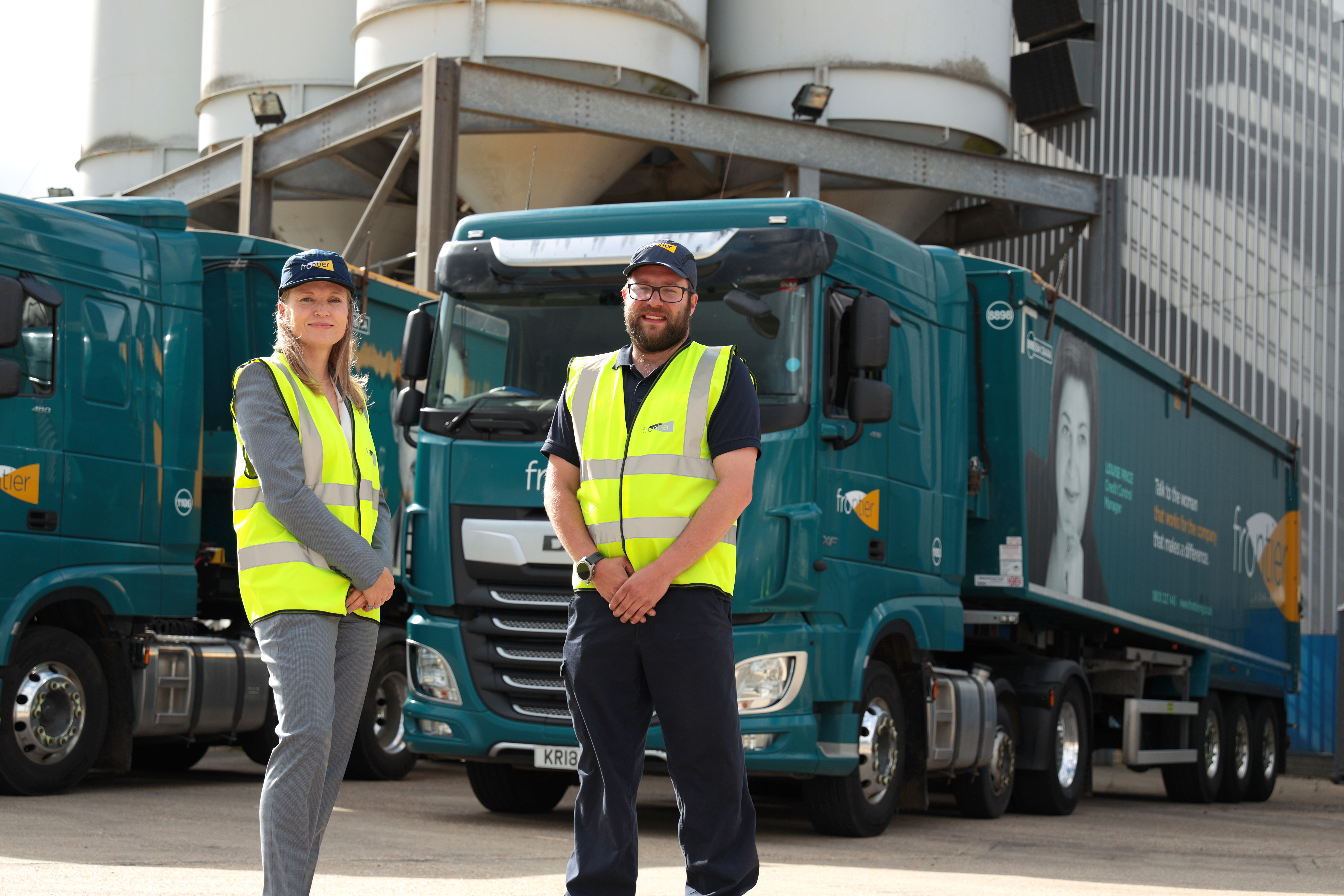July 2022
Frontier Agriculture is using hydrotreated vegetable oil (HVO) fuel in a number of vehicles as part of its work to reduce its carbon intensity.
The company has pledged to bring carbon emissions from its own operations to net zero by 2030, with energy saving haulage solutions playing a key part in the project.
Immediate benefits
 Frontier is using HVO fuel in all bulk haulage ‘facetruck’ vehicles operating out of its sites in Sandy, Bedfordshire and Diss, Norfolk. The 44-tonne trucks, 35 of which are running across the two sites, are used to collect and deliver grain across England and Scotland and in 2021 transported 1.15 million tonnes of grain, seed and fertiliser.
Frontier is using HVO fuel in all bulk haulage ‘facetruck’ vehicles operating out of its sites in Sandy, Bedfordshire and Diss, Norfolk. The 44-tonne trucks, 35 of which are running across the two sites, are used to collect and deliver grain across England and Scotland and in 2021 transported 1.15 million tonnes of grain, seed and fertiliser.
So far the company has saved over 1,320 metric tonnes of CO2 as a result of the switch. Frontier has consumed approximately 520,000 litres of HVO fuel to date; this makes up over 20% of the fuel mix for its delivery vehicles and bulk fleet of 126 trucks.
“HVO is an effective solution in our journey to decarbonising our fleet,” says Diana MacDuff, group finance director at Frontier.
“The great thing about HVO is that it can be used in any diesel vehicle without the need to make modifications."
Caption: Frontier Group Finance Director, Diana MacDuff
HVO reduces:
- Particulates by up to 85%
- Nitrogen oxides by up to 30%
- Greenhouse gases by up to 90%
- CO2 emissions by up to 90%.
(Source: GBF Ltd, independently audited and verified by the International Sustainability and Carbon Certification Organisation.)

Frontier professional LGV driver, Ben Holl was at the company’s Sandy site to show Diana some of the fleet and said “It’s great to see the company taking steps to reduce the impact of our vehicles on the environment. I’ve been with Frontier for over seven years and using HVO fuel for a year now. I have not noticed any negative impact on vehicle performance so it is definitely a step in the right direction.”
Future solutions
In addition to HVO, Frontier is keen to explore other alternative fuels across its fleet of bulk vehicles, delivery vans and company cars including liquified natural gas (LNG), compressed natural gas (CNG), hydrogen and electric.
“HVO is one solution for the business to cut carbon emissions whilst we research other long-term energy saving options,” Diana explains.
As well as vehicles, Frontier is looking into the use of HVO in pieces of on-site equipment which require oil or diesel to operate, such as grain dryers.
Caption: Diana with Frontier LGV Driver, Ben Holl
Reaching net zero
 Frontier’s alternative fuel trials are part of a wider project to reduce the company’s carbon footprint. Last year Frontier revealed its plans to increase its investment in renewable energy by installing solar panels at more of its sites.
Frontier’s alternative fuel trials are part of a wider project to reduce the company’s carbon footprint. Last year Frontier revealed its plans to increase its investment in renewable energy by installing solar panels at more of its sites.
To find out more about Frontier’s sustainability initiative, The Responsible Choice, and approach to net zero, visit www.frontierag.co.uk/about/trc.









